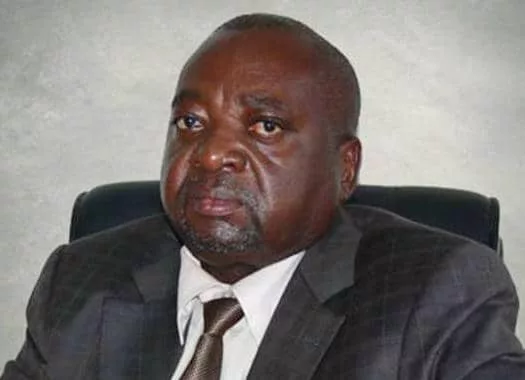|
Getting your Trinity Audio player ready...
|
Writes Sirak Gebrehiwot
Mid-Term Review of the Zimbabwe – UN Cooperation Framework Spotlights Robust Partnerships for SDGs
26 September 2024, Harare – A high-level meeting co-convened by the UN Country Team and Office of the President and Cabinet brought together senior government leaders, United Nations representatives, and national and international development partners to conduct the mid-term review of the 2022-2026 Zimbabwe United Nations Sustainable Development Cooperation Framework (ZUNSDCF). The meeting emphasized the critical role of partnerships in advancing sustainable development, aligning with Zimbabwe’s Vision 2030 and the global 2030 Sustainable Development Agenda.
Dr. Martin Rushwaya, the Chief Secretary to the President and Cabinet, represented by Deputy Chief Secretary Reverend Paul Damasane, highlighted the Framework’s importance in harmonizing UN support with Zimbabwe’s development goals. He stated, “The Zimbabwe UN Sustainable Development Cooperation Framework is a very critical exercise that offers us an opportunity to reflect, introspect, and realign our programming,” and reiterated the government’s commitment to community-centered approaches and equitable resource distribution, which are vital for achieving the SDGs.
Mr. Edward Kallon, the UN Resident and Humanitarian Coordinator, described the framework as a strategic partnership, emphasizing the importance of inclusivity and collaboration among stakeholders. “The Cooperation Framework transcends being merely a blueprint for UN-funded activities in the country. It directs planning and execution of UN development initiatives,” Mr. Kallon noted. He praised the collective efforts of 25 UN entities under the Framework, which have led to tangible results, emphasizing that platforms for inclusive dialogues are essential for securing sustainable financing and facilitating multi-stakeholder partnerships.
Ms. Eneida Fernandes, Co-Chair of the Zimbabwe Development Partners Forum (ZDPF) and World Bank Country Manager acknowledged the significant contributions of forum members to critical sectors, including health, education, food and nutrition security, climate action, and gender equality. Financial and technical support from ZDPF members was channeled through various initiatives such as the Health Resilience Fund, Education Development Fund, and Humanitarian Response to address cholera outbreaks. The Zimbabwe Idai Recovery Programme focused on building back community livelihoods, improving food security, access to safe drinking water, and protecting public health. The Spotlight Initiative has been pivotal in combating violence against women and girls while reinforcing sexual and reproductive health services. Additionally, initiatives like the Zimbabwe Resilience Building Fund have strengthened community capacities to withstand climate impacts. Despite these advancements, she highlighted the urgency of addressing ongoing economic and monetary challenges that, coupled with the impacts of climate change, continue to hinder GDP growth.
Ms. Fernandes emphasized that effective responses require the government to bolster stakeholder coordination and engagement. The focus will center on three key areas: promoting macroeconomic stability through strategic interventions, coordinating efforts for climate change mitigation, and enhancing cooperation with the Government of Zimbabwe and partners on selected priorities such as gender equality, social protection, climate-smart agriculture, and accelerating the implementation of debt and arrears resolution.
Throughout discussions, a strong emphasis was placed on addressing the needs of the most vulnerable populations, supported by reliable data and transformative actions to overcome barriers. Ms. Fernandes remarked on the necessity of aligning resources amid global priorities, stating, “we must strive to do more with less, ensuring value for money.”
As Zimbabwe approaches the final year of its National Development Strategy One (NDS1), the mid-term review has created a platform to highlight achievements and refine future strategies. By prioritizing participatory and inclusive approaches, the collaborative efforts of the Government, the UN, and Development Partners aim to facilitate transformation across social, economic, environmental, and democratic governance sectors through the Cooperation Framework, ensuring that no one is left behind.
The meeting emphasized the strength of partnerships and collaboration as Zimbabwe moves towards a sustainable and inclusive future envisioned in Vision 2030. The enhanced cooperation during this period illustrates the potential for collective progress in sustainable development that benefits all Zimbabweans.
The Mid-Term Review was attended by over 250 senior officials, including Government representatives, UN Heads of Agencies, Ambassadors, members of the Diplomatic Corps, Heads of International Development Agencies, members of the ZDPF, and delegates from the private sector, civil society, youth, women, and persons with disabilities.
Sirak Gebrehiwot, UN Partnerships and Development Finance Advisor at the UN Resident Coordinator’s Office in Zimbabwe






